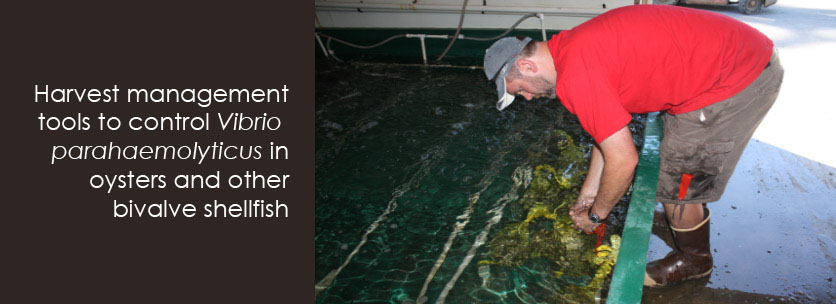|
PSI is currently conducting manipulative experiments and experimental analyses of factors influencing Vibrio parahaemolyticus (Vp) levels and post-harvest methods to minimize the risk of Vp-induced food poisoning. Vibriosis is an intestinal disease caused by bacteria called vibrio, which are found in both fish and shellfish. Vibrio occurs naturally in marine coastal waters, but is more common in the warmer summer months. Although there are several types of vibrio, Vp is the most common in Pacific Northwest waters. Failure to keep shellfish cold after harvesting can contribute to the growth of the bacteria. Poor food handling practices during preparation or improper refrigeration of prepared seafood can also lead to illness.
This study will provide much needed information for enhanced control of pathogenic Vp in shellfish on shellfish farms, with a focus on oysters, the most common species implicated in shellfish-related food poisoning. Experiments will evaluate the success of various post-harvest holding methods (temperature controlled-seawater depuration systems or ambient seawater at the harvest site) in reducing the levels of Vp in oysters.
This project is supported by funds from the NOAA National Marine Fisheries Service and conducted in conjunction with the University of Washington, School of Aquatic and Fishery Sciences and representatives of the Washington State shellfish industry.
Learn more about this project...
|













